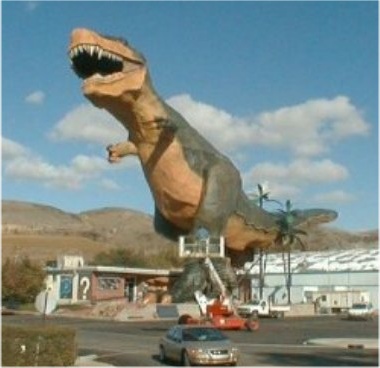"We are the most dangerous species of life on the planet, and every other species, even the earth itself, has cause to fear our power to exterminate."
At least that's how Wallace Stegner, American novelist and environmentalist, puts it. And it certainly seems to be the word on the street in a lot of other places these days. Humans are at fault for everything under the sun - figuratively and maybe literally. I don't disagree we can do better but, for the sake of humanity, someone needs to stick up for us.
Humans are the only species in 4.8 Billion years of planetary existence that has completely gone against the basic theory of evolution. Instead of adapting to our surroundings, we've made the environment adapt to us.
We like to think of ourselves as simple beings, living day by day doing what we believe is right, but when we finally take a moment to reflect, we still pursue higher issues like why are we here?
Of course, I can't answer that question, but it gives us a way to think about the real impact we've come to have. We are leaving a significant imprint by our behavior in the present and, I don't know about you, but I personally don't want the entire human race of the early 21st century to be looked down upon for the few mistakes we have made.
Let's begin at the beginning; wayyy back to the age of the Dinosaur.
 Not an actual dinosaur. Do not be alarmed.
Not an actual dinosaur. Do not be alarmed.
Sure, they were enormous and likely downright frightening, but were there any substantial negatives to their very existence? Did their behavior cause an effect on nearly every species of their time? Of course not!
Humans on the other hand, are blamed for the extinction of numerous species of animals as well as for the possible extinction of the planet.
Since we're in the 21st century, I did a quick search. Just with a quick search of one science site I can find 50 articles that list the year 2100 as a magical point-of-no-return date. Why did they pick it? I don't know, probably because it is a round number, like 2000 was. On one hand, you can say the Y2K issue was a problem everyone talked about that never happened - so it was hype - but on the other hand you can say Y2K never happened because we planned far enough in advance. So it is with climate issues. Relying on spacemen from the future to solve Y2K problems didn't make a lot of sense and waiting on future science to suddenly solve climate issues doesn't make sense either. But first ...
What are we doing and how did we get here?

As a more "advanced" species today (and I use quotations cynically, you'll see why in a minute), we are not merely gardening for the sake of food, but are instead tearing at the pits of the planet as a means to sustain what we call current 'needs'. We are completely aware of the impacts our actions may have, but continue to follow the same path regardless. No one competent in business would intentionally self-destruct their livelihood in such a way but some out there think we should do just that. Or they think we'll somehow have the science to go to another planet by the time it matters.
Enough about the bad. Why not focus on some good for once, shall we?
Everyone has already been briefed on the current global issues, but what relatively few people talk about is the good we've caused. Plenty of people today are changing how we impact our planet in the hope that we will not be hated in the future.
As more and more people learn the truth (and not just what their politics tells them they should believe), the more that gets done done to halt the damage and, soon, to reverse it. Current science is helping to reuse energy, conserve wildlife, lessen dependancy on fossil fuels, and educate others.
Not everyone, of course, Oil companies make money on fossil fuels and environmental groups make money telling people to hate oil companies, but that is at the high level. On the ground level, hard-working scientists who care are working for both sides. They work for Exxon, they work for The Nature Conservancy and some even write on this site."We are the most dangerous species of life on the planet, and every other species, even the earth itself, has cause to fear our power to exterminate. But we are also the only species which, when it chooses to do so, will go to great effort to save what it might destroy."






Comments